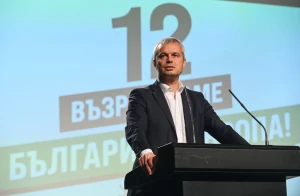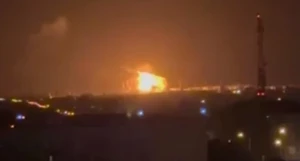
Czech presidential elections: who are the frontrunners and what is their stance on Ukraine?
The Czech Republic will head to the polls on 13 January in the first round of presidential elections to choose the successor of pro-Russian Miloš Zeman
The presidential elections in the Czech Republic – the first round of which will take place on 13 and 14 January – will open a new era in Czech politics after a decade of Miloš Zeman’s tenure.
Zeman, 78, is constitutionally barred from seeking a third term as the same person cannot hold the presidency for more than two terms. So polls are to decide who will replace the outgoing leader.
If no candidate gets more than 50% of the votes in the first round, then the two candidates with the highest number of votes are allowed to run for the second round.
While a victory in the first round is very unlikely, three politicians have emerged as the frontrunners.
Who are the top candidates?
The leading candidates who have a chance to become next president of the Czech Republic are: former Prime Minister Andrej Babiš, former rector of Brno’s Mendel University, economist professor Danuše Nerudová, and former Chief of the General Staff of the Czech Army and Chairman of the NATO Military Committee, General Petr Pavel.
According to the polls, the chances of Babiš and Pavel for the first round are equal at about 27 %, although Nerudová is losing a bit in the latest polls.
Andrej BabišThe former Czech Prime Minister, Andrej Babiš, a billionaire and one of the richest men of the country, has spent the recent months on trial, accused of EU subsidy fraud. Prague’s municipal court acquitted him just four days before the presidential election.
The ex-PM, 68, who now leads the opposition, described the prosecution as a "political process.”
Political analysts see him as an ally of the pro-Russian president, Miloš Zeman. Babiš has criticized government and European Union policies on support for Ukraine.
The former prime minister condemned Russia’s invasion, but speaking to Czech voters campaigning across the country, he said he was against more military aid to Ukraine from Prague.
Moreover his ANO party, established by Babiš in 2011, is trying to weaponize the fact that Czechia is hosting about 400,000 Ukrainian refugees.
However, the majority (73%) of Czechs overwhelmingly support sending weapons and aid to Ukraine and hosting refugees. So voters believe it is important to oppose Russia’s aggression.
The president does not have executive powers; however, analysts say a Babiš victory could make life difficult for the current government of Prime Minister Petr Fiala, which has taken a strongly pro-Ukrainian stance following Russia’s invasion of Ukraine.
Petr Pavel
The former prime minister is in a tight race with a retired army general and former NATO military commander Petr Pavel. For much of the election campaign he was seen as the favorite, but now his campaign is overshadowed by criticism of his past involvement with the communists.
Petr Pavel, 61, is seen as the candidate most strongly supportive of Ukraine. He has praised the Czech government for its aid for Kyiv since the full-scale invasion began.
Speaking to Expats.cz, Pavel said that war in Ukraine is affecting the entire international order. He said that “ Putin would feel encouraged by taking control of Ukraine. Also, he would see it as a confirmation of his mission to restore a Russian sphere of influence and exert some kind of control on the area of the former Soviet Union.”
Pavel said that Ukraine must be supported in its fight, and that only Kyiv can ultimately decide what constitutes victory.
Danuše Nerudová
An economist and academic Danuše Nerudová, 44, is attempting to become the country’s first ever female president. If elected, she would also be the youngest ever Czechia’s head of state. Similarly to Pavel, she is strongly pro-Western. Nerudová is popular among young voters as a liberal politician who was untarnished by the communist past.
She argues that the Czech Republic should not pursue close ties with authoritarian powers such as Russia and China, where human rights are violated.
Nerudová backs Ukraine but is less specific than Pavel when it comes to military support for Kyiv.
She said she “would go on a state visit to Ukraine” as “Ukrainians are also fighting for our security and freedom.” Adding that Russia is “behaving like a terrorist state.”
If no candidate gets a clear majority of votes, the second round will be held on January 27–28
The Czech president has mostly ceremonial powers, but the head of the state influences foreign policy and makes central bank appointments.
- News














































